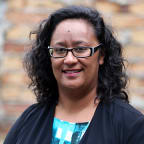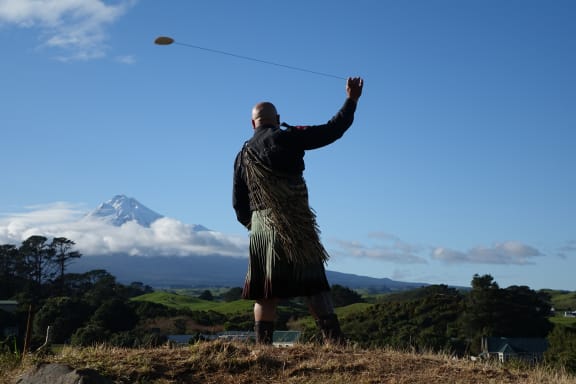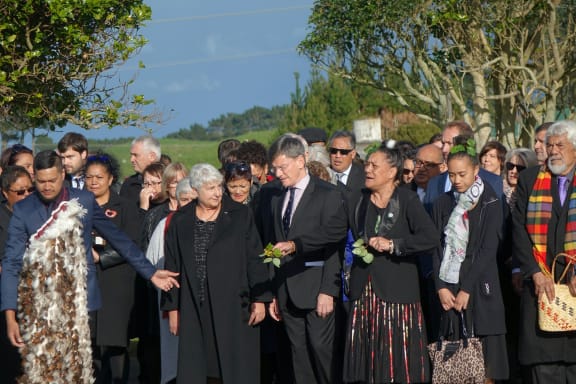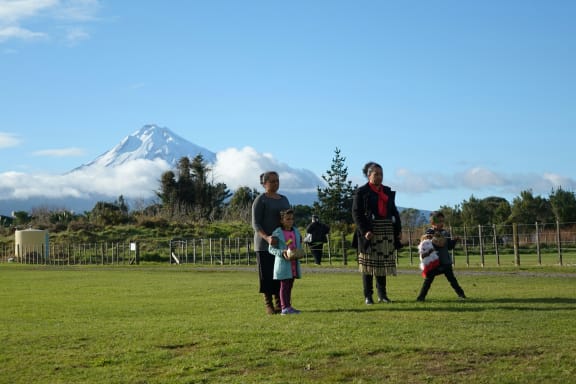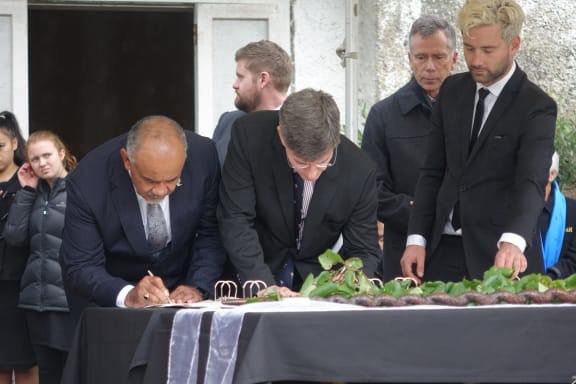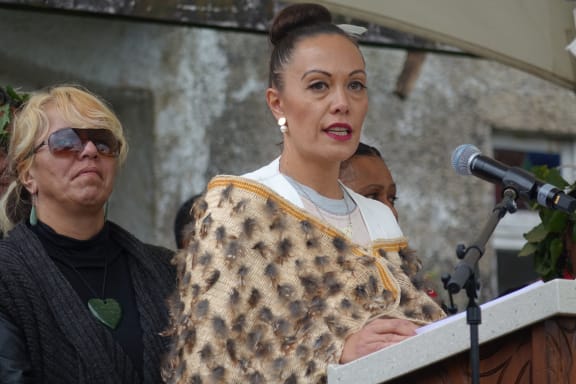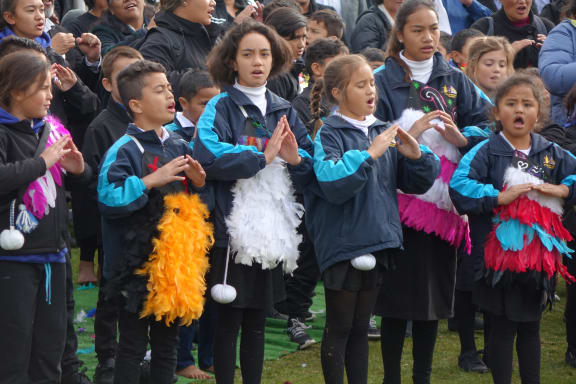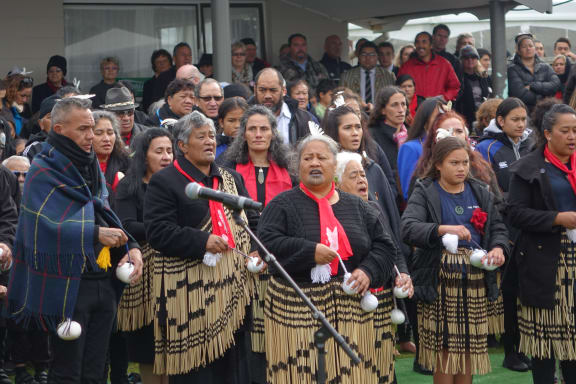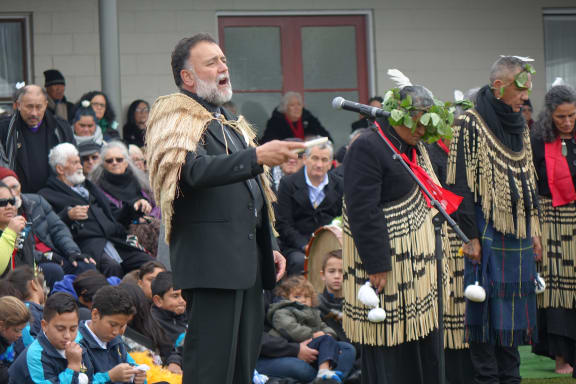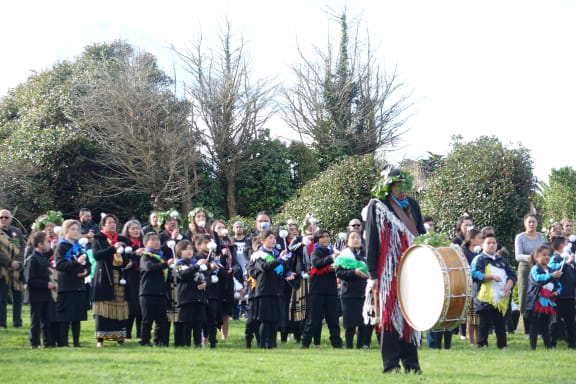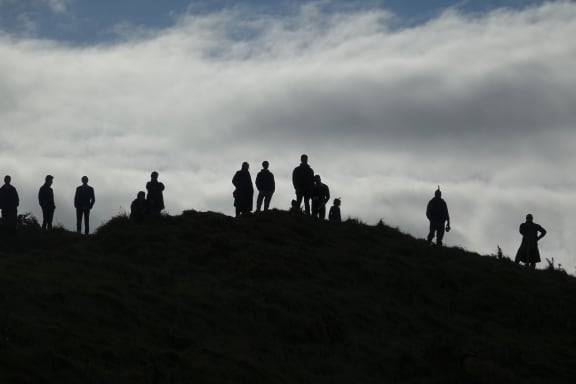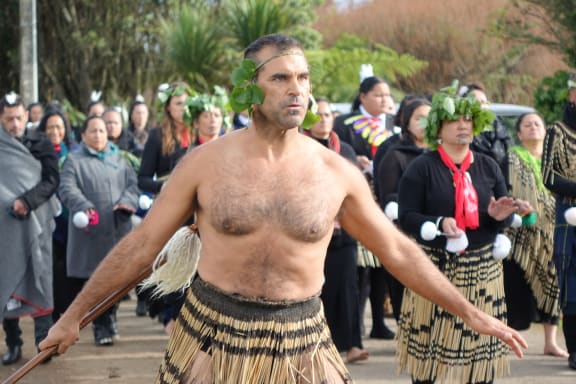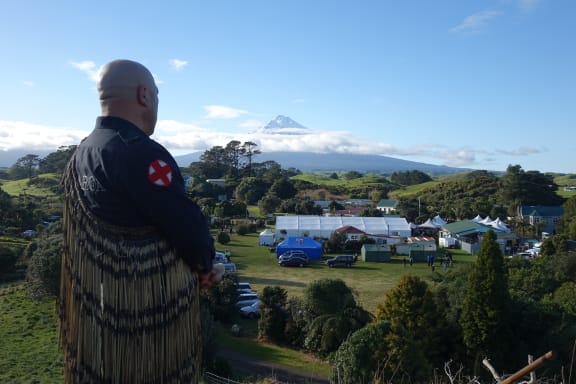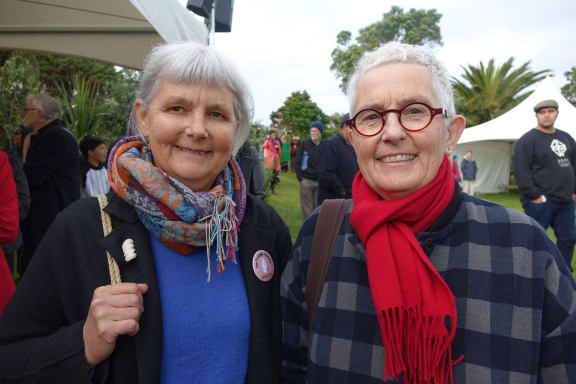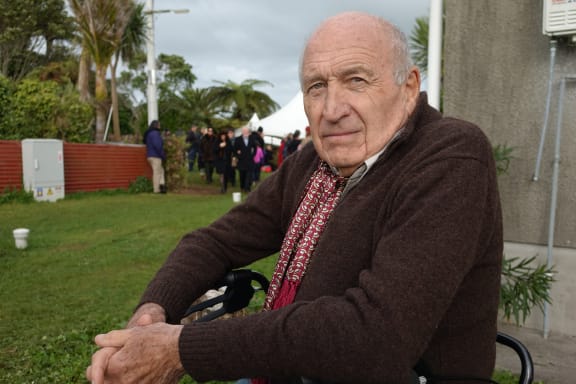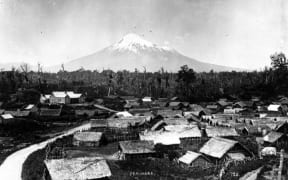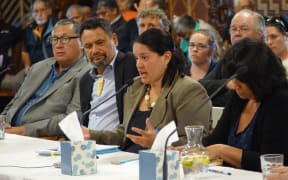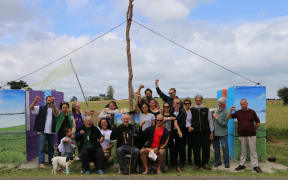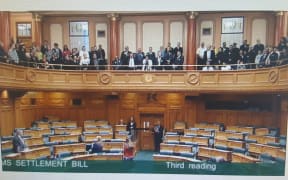The Crown has officially apologised for the atrocities it committed when it sacked the peaceful Taranaki settlement of Parihaka in 1881.
People openly wept as the apology was read out by Treaty Negotiations Minister Chris Finlayson.
He apologised for the wrongful arrests and imprisonment of Parihaka men and their leaders Te Whiti-o-Rongomai and Tohu Kākahi.
Mr Finlayson also apologised for the rape and molestation of the women and girls who were left behind when the men were imprisoned in the South Island.
He said it was a shameful part of New Zealand's history, which both Māori and Pākehā found hard talking about, for different reasons.
Representatives from the Kīngitanga and other tribes were welcomed onto the papakāinga this morning. Many local school children were also there and witnessed the signing of the reconciliation settlement at midday.
The Crown also signed a reconciliation package with the Parihaka Papakāinga Trust at the He Puanga Haeata ceremonies.
The package includes the apology, a legacy statement and a payment of $9 million, as well as deals for development services from 10 Crown agencies and three local councils.
Under the leadership of the prophets Te Whiti-o-Rongomai and Tohu Kākahi, Parihaka became a focus of non-violent resistance to land confiscation in the late 1800s, and it paid a heavy price for its defiance.
Hundreds of government troops invaded the settlement on 5 November 1881, and the village was destroyed and its leaders were arrested and detained without trial for 16 months.
Rain and tears fall as women's suffering acknowledged
Trust chairwoman Puna Wano-Bryant said today's ceremonies were less about the living and more about the tupuna who had come before.
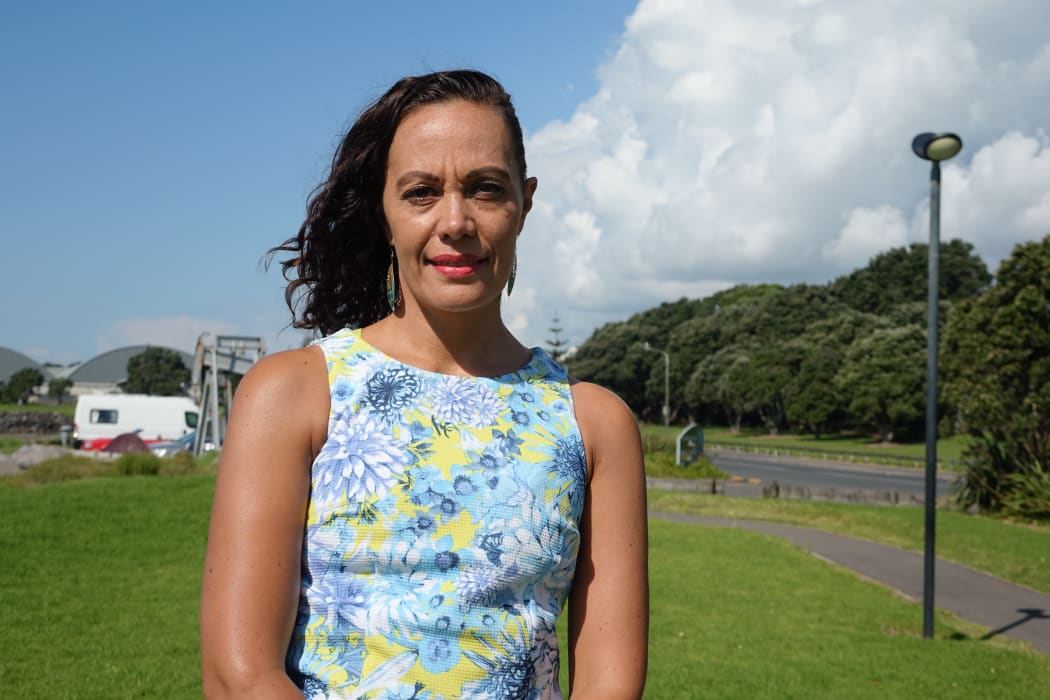
Parihaka Papakāinga Trust chair Puna Wano-Bryant Photo: RNZ / Robin Martin
"People like Tohu and Te Whiti who made that stand on our behalf all that time ago, who didn't see the fruits of their stance, who didn't live to see the benefits that we can hope to see in the future."
Ms Wano-Bryant cried when she described what happened to her tupuna, especially the women.
"Our women were raped and assaulted by Crown troops, those women were our mothers and our grandmothers from here and the violation of whakapapa happened here."
During her speech and her emotional account of what happened, it started to rain. After her speech, women of Parihaka performed a poi about a young girl being molested.
Ms Wano-Bryant said the history of what happen to the men at Parihaka was well known but what happened to the women wasn't really talked about much.
"The women and the rape of the women, their story was silenced because of the shame that goes along with that act.
'Tremendous day'
Former Prime Minister Jim Bolger was brought up in Taranaki and, along with Dame Tariana Turia, helped start the reconciliation process. Mr Bolger said he knew little of what had happened at the papakāinga when he was a boy.
"This is a tremendous day for Parihaka and all of New Zealand, this has so much symbolism in it because what happened in 1881 was so draconian and so wrong, to see the reconciliation and understanding here is a testament to modern New Zealand."
Tribal historian and Te Kotahitanga o Te Ātiawa Trust chief executive Hemi Sundgren helped draw up the legacy document created as part of the reconciliation process.
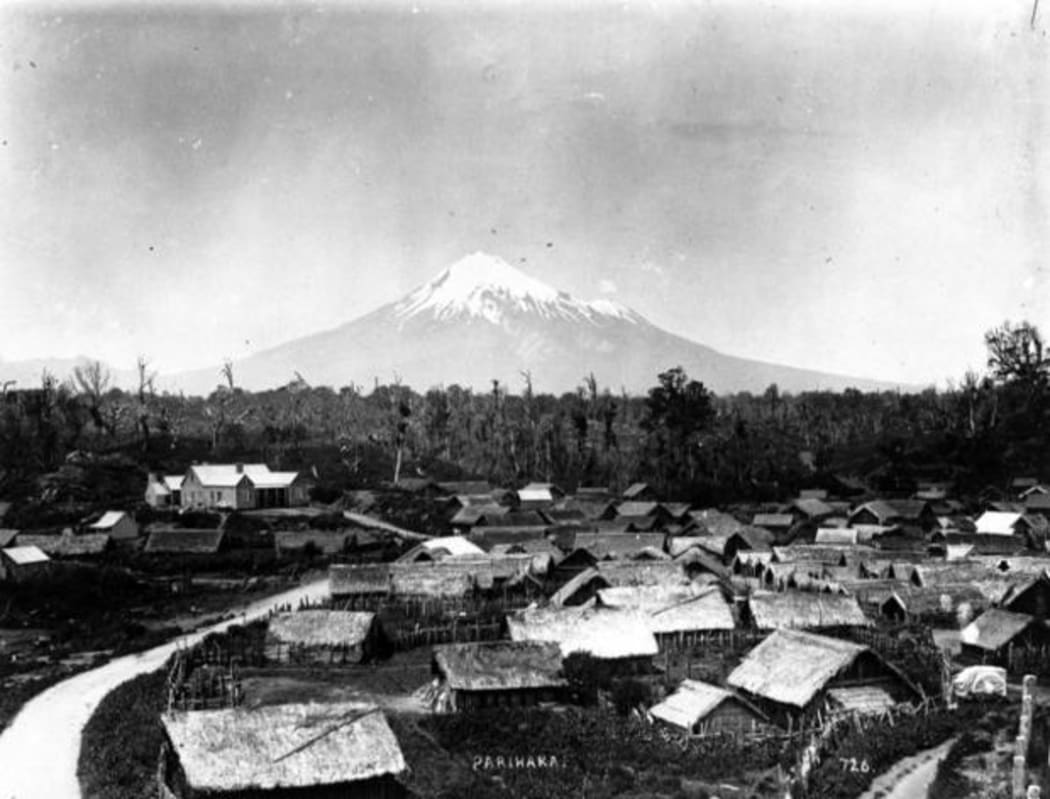
Parihaka Pa, circa 1900 Photo: Union Steam Ship Company of New Zealand / Alexander Turnbull Library
Mr Sundgren said Parihaka thrived for about a decade during a period known as Te Haeata or the new dawn.
But settler appetite for land proved insatiable and, in 1879, men from Parihaka set out to plough illegally confiscated land.
"They obviously picked up a plough in response to the way in which the government was seeking to take over and assume ownership over lands that a lot of our tipuna considered they still have interests in.
"So the plough was obviously a form of non-violent action as a symbol of ownership."
Their defiance eventually led to about 1600 government troops sacking the settlement, burning homes and destroying crops and livestock as they went.
The ploughmen were arrested and imprisoned without charge and many were held in Wellington and Dunedin, where evidence of their prison labour can still be found.
A kuia from Mr Sundgren's family was forcibly removed from Parihaka and he said it would be an emotional day for him and many others.
"You know it's taken a 130-140 years of mamae [hurt and torment] and so that's the kind of thing that can't be resolved immediately.
"So for me it will be a longer process to reconcile the past but it is a start."
Descendants of troops welcome apology
At the conclusion of today's ceremonies, family members were offered an oha or gift basket representing the hospitality shown to the invading troops in 1881.
Min and Henrietta Hall are the great great grand daughters of John Hall, who was Prime Minister at the time of the invasion.
Min Hall said the family became aware of their ancestor's role at Parihaka about 30 years ago and felt it was important that they were represented at the reconciliation ceremony.
"I was shocked I guess to find this was part of my family heritage and I came here personally about 12 years ago and it's important to be here publicly now I think."
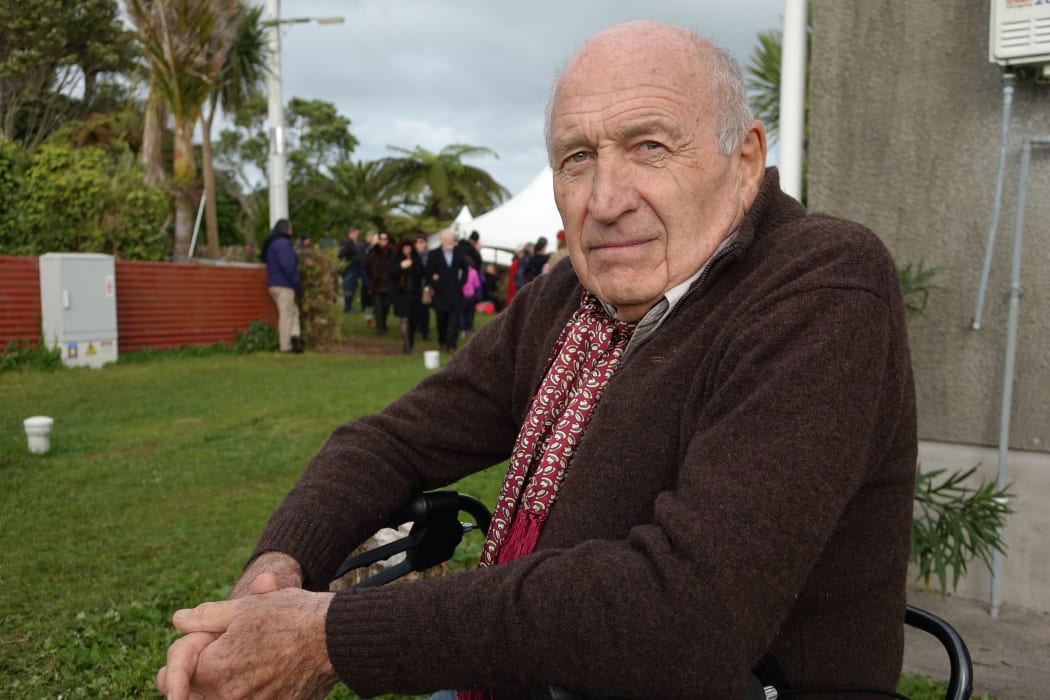
Warren Sisarich Photo: RNZ / Robin Martin
Warren Sisarich's great great grandfather was a member of the Taranaki constabulary that took part in the sacking of the Parihaka settlement.
Mr Sisarich said it was vitally important for him to be there today.
"We've had a soft spot in our hearts for Parihaka for many years and we've understood a lot of the injustices that had occurred but had never been properly addressed.
"So we here just keen to be part of this event today with the apologies, the forgiveness and the new start that's going possible here."
Mr Sisarich said the direct style of the apology was the right approach.
"I was reassured by the nature of apology. I thought it was a beautiful, full and frank apology.
"Maybe it's time we started admitting our faults and seeking forgiveness and saying sorry."
Also in attendance were descendants of William Rolleston, who made the declaration to invade Parihaka, and John Bryce, the Minister of Native Affairs who led the 1600 volunteers and armed constabulary on to the pa.
Future plans
The Parihaka Papakāinga Trust has bold plans to create a multi-purpose cultural centre at the settlement, designed to secure the legacy of Te Whiti-o-Rongomai and Tohu Kākahi.
But that was for the future; today was a time to reflect on the struggle, and those tupuna who did not get a chance to resolve their differences with the Crown.
